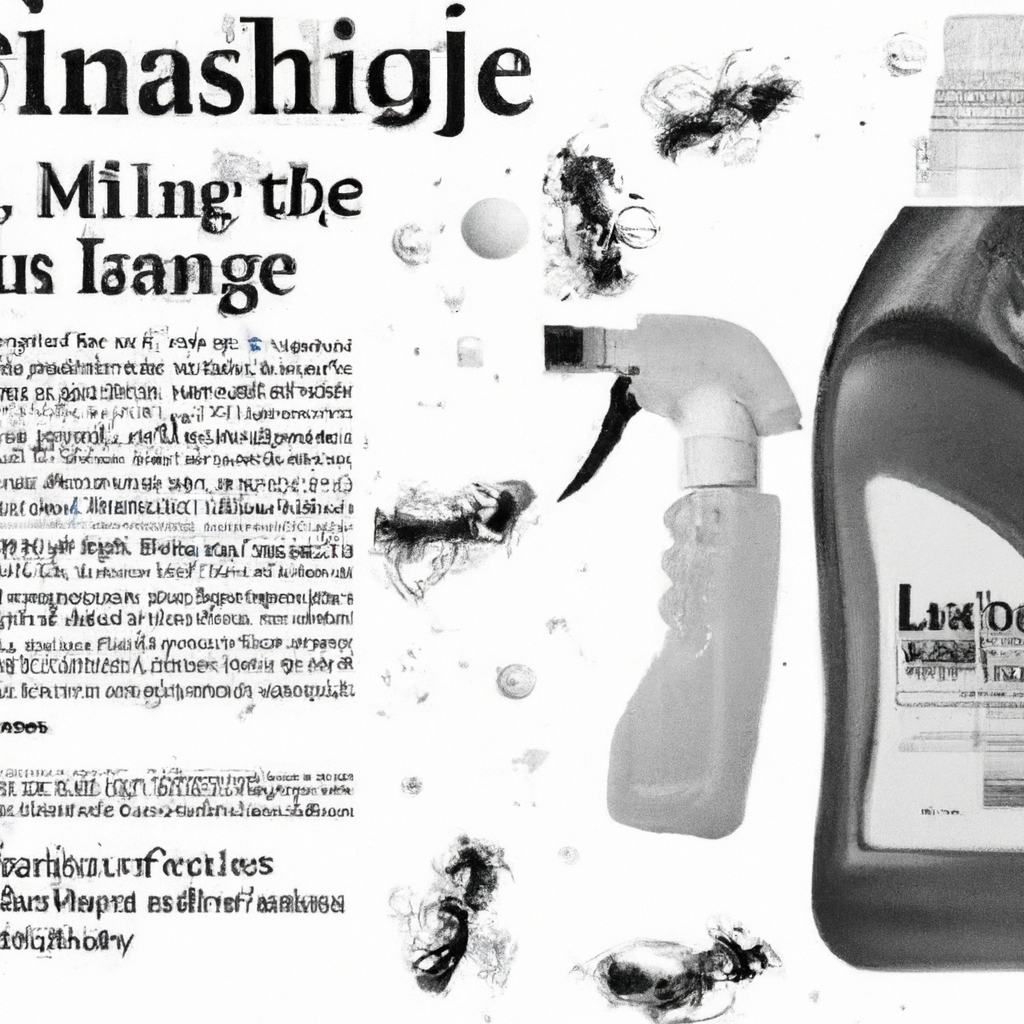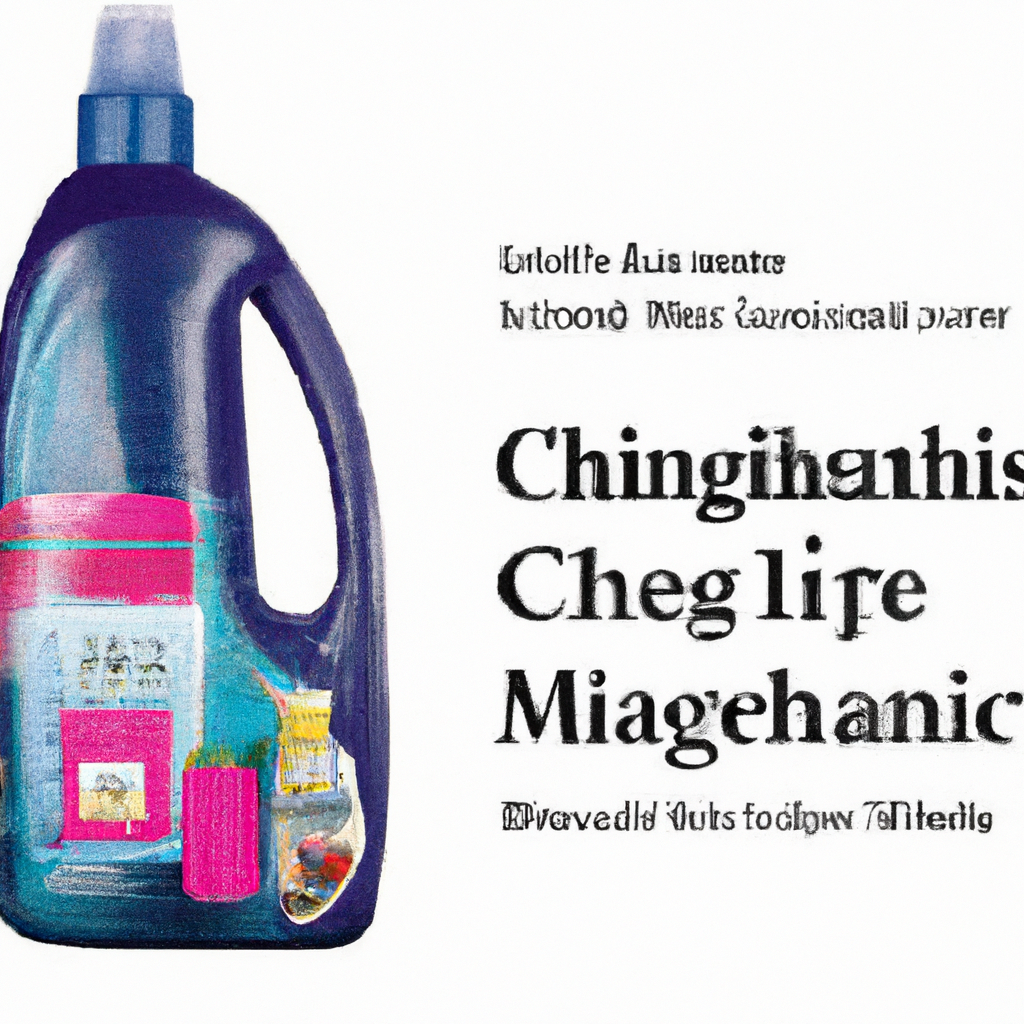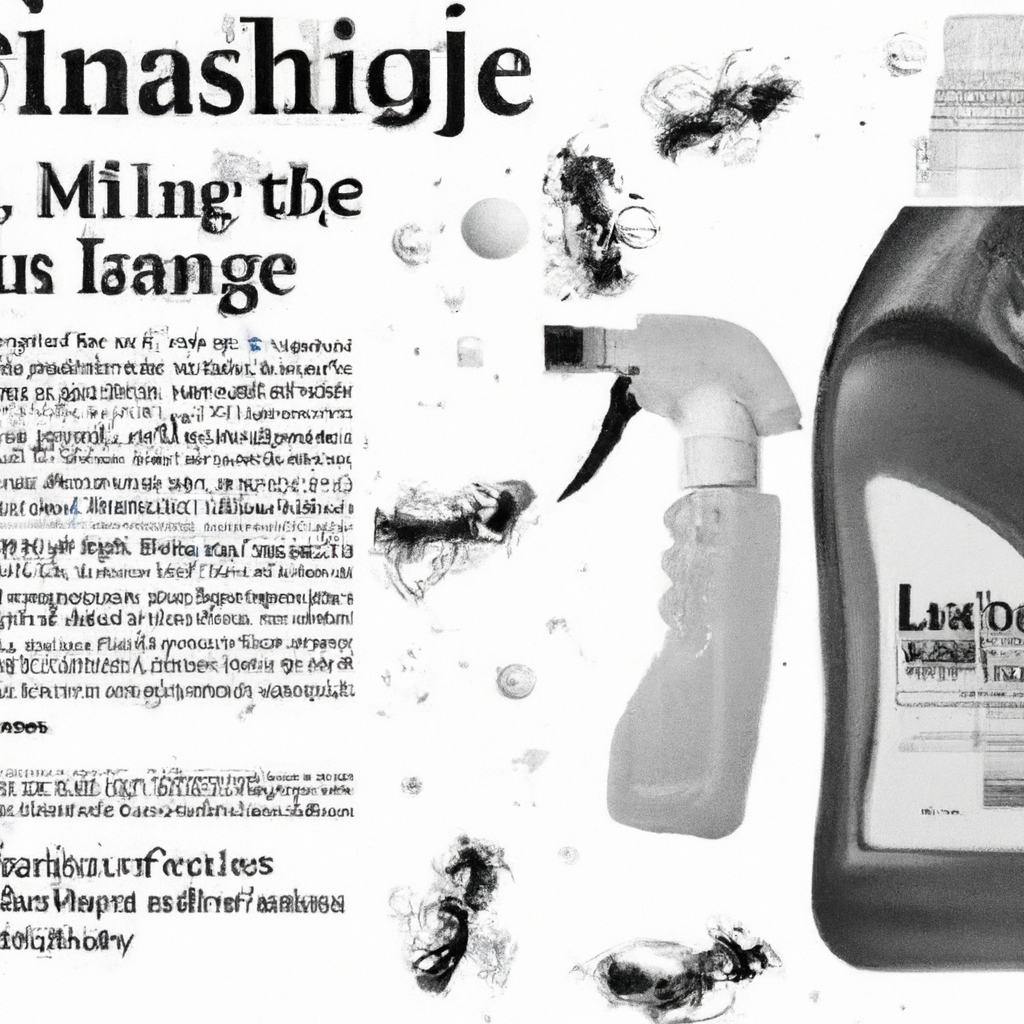You’ve probably wondered whether the cleaning products used by companies are environmentally friendly. In today’s article, we’ll discuss the biodegradability and sustainability of these products. We’ll explore whether most cleaning products used by companies align with the principles of being biodegradable or sustainable. By diving into this topic, we can gain a better understanding of the impact these products have on the environment.

Definition of Biodegradable and Sustainable Cleaning Products
Biodegradable Cleaning Products:
Biodegradable cleaning products are those that have the ability to break down naturally and decompose over time. These products are designed to minimize their impact on the environment by ensuring that their ingredients and formulations can be broken down by natural processes, such as microbial action or exposure to sunlight.
Sustainable Cleaning Products:
Sustainable cleaning products are those that are produced and used in a way that minimizes their impact on the environment and supports long-term ecological balance. These products are made using ingredients and formulations that are renewable, non-toxic, and energy-efficient. Additionally, sustainable cleaning products take into account the entire lifecycle of the product, from manufacturing to disposal.
The Importance of Using Biodegradable and Sustainable Cleaning Products
Environmental Impact:
Using biodegradable and sustainable cleaning products is vital for reducing the negative impact on the environment. Conventional cleaning products often contain harmful chemicals that can contaminate waterways, harm wildlife, and contribute to air pollution. Biodegradable and sustainable cleaning products, on the other hand, are designed to minimize these impacts by utilizing environmentally friendly ingredients and manufacturing processes.
Health and Safety:
Traditional cleaning products can pose health risks due to their use of toxic chemicals. Exposure to these chemicals can lead to various health problems, such as skin irritation, respiratory issues, and allergies. In contrast, biodegradable and sustainable cleaning products are formulated with non-toxic ingredients, making them safer for both users and the environment.
Sustainable Business Practices:
Using biodegradable and sustainable cleaning products is not only beneficial for the environment and health, but it also promotes sustainable business practices. By incorporating these products into their operations, companies can reduce their carbon footprint, conserve resources, and contribute to a healthier planet. Moreover, companies that prioritize sustainability are more likely to attract environmentally conscious customers and build a positive brand reputation.

Challenges in the Cleaning Products Industry
Chemical Ingredients:
One of the challenges in the cleaning products industry is the use of harmful chemical ingredients in many conventional cleaning products. These chemicals, such as phthalates, formaldehyde, and chlorine, can have detrimental effects on human health and the environment. Finding alternatives that are both effective and safe is crucial for the development and adoption of biodegradable and sustainable cleaning products.
Packaging Waste:
Another challenge faced by the cleaning products industry is the issue of packaging waste. Many conventional cleaning products are packaged in plastic containers that end up in landfills or polluting the oceans. Sustainable cleaning products aim to address this challenge by opting for eco-friendly packaging materials, such as recycled plastic or biodegradable alternatives.
Labeling and Certification:
A significant challenge for consumers is the lack of clear labeling and certification standards for biodegradable and sustainable cleaning products. Without clear guidelines, it can be difficult for consumers to identify products that truly meet their environmental and health criteria. Establishing standardized certifications and labels can help consumers make informed choices and hold companies accountable for their sustainability claims.
Biodegradable Cleaning Products
Definition:
Biodegradable cleaning products are specifically formulated to break down and decompose naturally over time, often with the assistance of microorganisms. These products are designed to minimize their impact on the environment by ensuring that their ingredients can be broken down without leaving harmful residues.
Ingredients and Formulations:
Biodegradable cleaning products typically utilize plant-based ingredients, enzymes, and microbial cultures that have the ability to break down organic matter. These formulations are biodegradable because they can be broken down by natural processes, such as bacterial action or exposure to sunlight.
Benefits:
The use of biodegradable cleaning products offers several benefits. Firstly, they reduce the release of harmful chemicals into the environment, minimizing pollution and protecting ecosystems. Secondly, biodegradable products are safer for human health, as they avoid the use of toxic ingredients that can lead to allergies and respiratory issues. Lastly, using biodegradable cleaning products supports the development of a circular economy by enabling the recycling and reintegration of waste materials.
Limitations:
While biodegradable cleaning products offer numerous advantages, they also have limitations. Some formulations may have a shorter shelf life compared to conventional cleaning products, requiring more frequent replacements. Additionally, certain types of organic stains or substances may be more challenging to remove using biodegradable cleaners. It is important to evaluate each product’s effectiveness based on specific cleaning needs.
Certifications and Labels:
To ensure the credibility and transparency of biodegradable cleaning products, various certifications and labels are available. For example, the “Biodegradable Products Institute (BPI)” certification verifies whether a product meets the standards for biodegradability. The “USDA Certified Biobased Product” label indicates the percentage of a product’s ingredients that come from renewable sources.
Examples of Biodegradable Cleaning Products:
Some examples of biodegradable cleaning products include eco-friendly laundry detergents, all-purpose cleaners, dishwashing liquids, and bathroom cleaners. These products are formulated to effectively clean while minimizing harm to the environment and human health.
Sustainable Cleaning Products
Definition:
Sustainable cleaning products are designed to have a minimal impact on the environment throughout their lifecycle. These products not only consider the environmental impact of their ingredients and formulations but also take into account their production methods, packaging materials, and disposal options.
Ingredients and Formulations:
Sustainable cleaning products prioritize the use of renewable and non-toxic ingredients. These may include plant-based surfactants, natural fragrances, and biodegradable solvents. Moreover, sustainable formulations aim to minimize the use of water, energy, and other resources during production.
Benefits:
Using sustainable cleaning products offers significant benefits for the environment, human health, and overall sustainability efforts. Firstly, sustainable products help conserve natural resources, such as water and energy, by utilizing renewable materials and reducing waste. Secondly, they contribute to reducing pollution and protecting ecosystems by avoiding the use of harmful chemicals. Lastly, sustainable cleaning products promote a healthier living environment by minimizing exposure to toxic substances.
Limitations:
While sustainable cleaning products have many advantages, they may come with a higher price tag compared to conventional products. The investment in sustainable practices, research, and sourcing of eco-friendly ingredients can result in increased production costs. However, it is essential to consider the long-term benefits for both the environment and human well-being.
Certifications and Labels:
To verify the sustainability claims of cleaning products, several certifications and labels have been developed. The “EcoLogo” certification ensures that a product meets specific environmental standards throughout its life cycle. The “Cradle to Cradle” certification assesses a product’s materials, manufacturing processes, and social responsibility criteria.
Examples of Sustainable Cleaning Products:
Sustainable cleaning products encompass a wide range of items, such as eco-friendly floor cleaners, multipurpose cleaners, glass cleaners, and carpet cleaners. These products are designed to effectively clean while minimizing their impact on the environment.
Note: The article continues with Regulations and Standards for Biodegradability and Sustainability, Common Misconceptions about Biodegradable and Sustainable Cleaning Products, The Role of Companies in Promoting Biodegradable and Sustainable Cleaning Products, Consumer Awareness and Demand for Biodegradable and Sustainable Cleaning Products, and concludes with the Conclusion section, which should summarize the main points discussed in the article.
